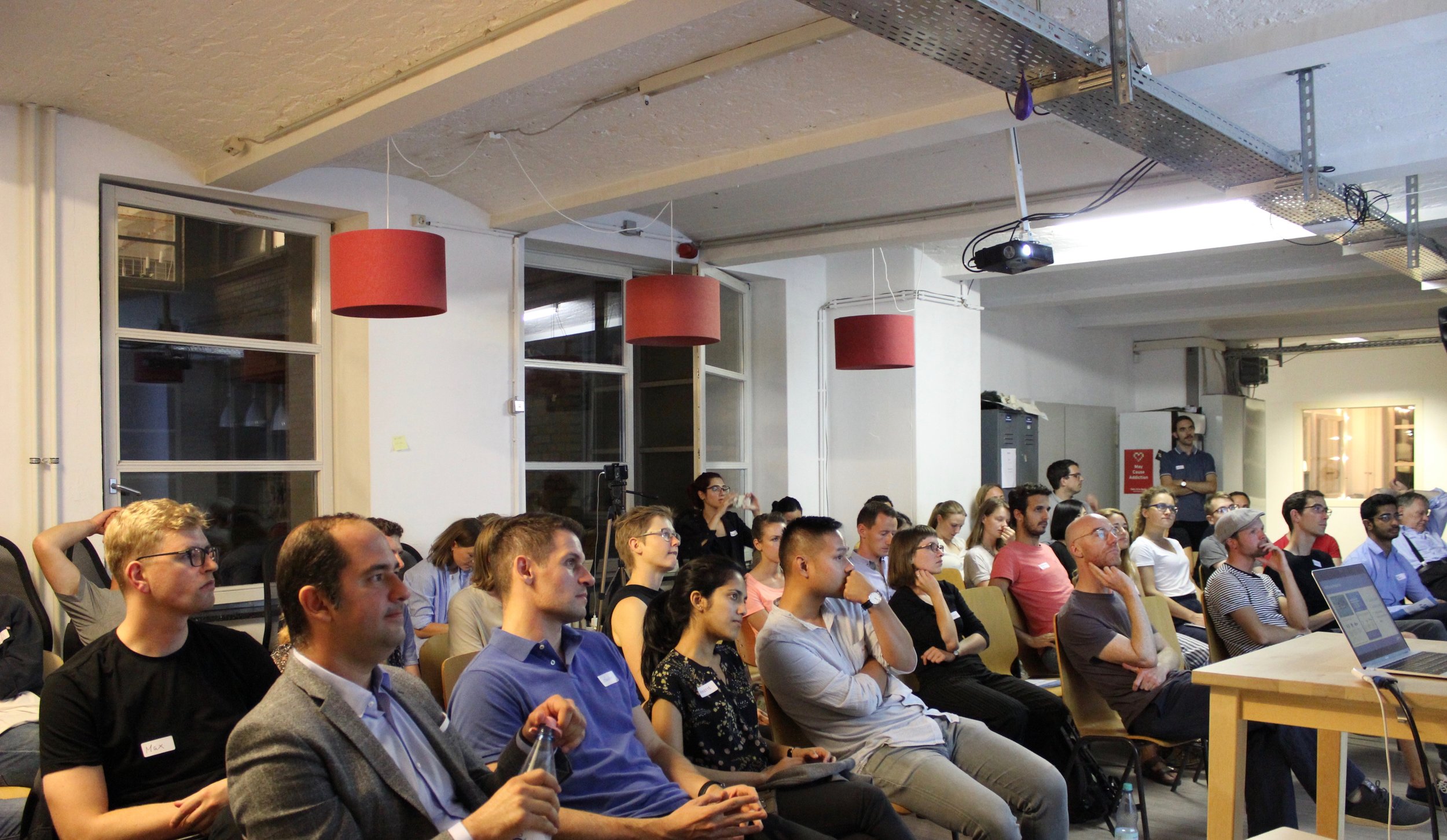By Benedetta Ludovisi
Geographic data and accurate maps are essential for improving public health outcomes. Up-to-date information on where people live, the best way to reach them, and the location of nearby medical facilities is fundamental to enhancing healthcare systems. When settlements and points of interest are surveyed and mapped, frontline healthcare workers and medical supplies can reach even the most remote communities. The proliferation of geographic information systems (GIS) technology and spatially enabled data collection tools have helped governments and NGOs connect the dots in public health and improve effectiveness of health interventions.
Connecting the dots - Geodata in Healthcare” audience ready for the Q&A session
Johanna Roegele, the Managing Director of eHA German office, welcomes attendees and introduces the speakers for the evening
In order to take a closer look at this topic, our Germany-based office partnered with Viderum to host "Connecting the dots - Geodata in Healthcare" on September 19 at the co.up coworking space in Berlin, the second in a series of technology and global health meetups in Germany.
Johanna Roegele (Managing Director, Germany Office, eHealth Africa) welcomed attendees and introduced eHA’s and Viderum's speakers for the evening. She also shared her vision for these meetups—a forum to share the work eHA does with Berlin’s tech and global health communities, and to create opportunities for innovative organizations to partner and learn from each other.
Sebastian Moleski, Viderum's CEO, introduces their mission to the audience
The second speaker was Sebastian Moleski (CEO, Viderum) who introduced Viderum as an expert in Open Data working with high-profile partners in the field of data and health. He explained that their mission is to make the world's public data discoverable and accessible to everyone by providing data management solutions and tools that not only allow the strategic use of data, but also play a crucial role in analyzing, tracking and predicting public health trends.
Dave Henry, eHA’s Director of Global Health Informatics, gave a presentation on eHA's use of GIS technology for the VTS project, aimed at polio eradication, a disease for which immunization requires at least three vaccine doses within a child’s first year of life. GIS technology has enabled vaccination campaigns to locate, reach, and vaccinate children in hard-to-find settlements.
Adam Butler, eHA Technical team lead in Berlin, gives a demonstration of eHA's data collection tool Gather
After Dave’s overview of the effort to eradicate polio, its challenges, and the role of GIS technology in the initiative, Adam Butler (Technical Team Manager, Germany office, eHealth Africa) and Marko Bocevski (CTO, Viderum) got ready to demonstrate how geodata can be collected, shared and visualized using eHA’s and Viderum's tools.
Adam demonstrated eHA’s latest data collection tool Gather, built for secure, real-time, spatially-enabled data collection and map-plotting, to show how GPS-enabled devices can easily capture coordinates of health facilities, settlements, and roads.
Marko Bocevski, Viderum's CTO, shows the functionalities of Viderum's visualization tool for CKAN
Following Adam’s demo, Marko demonstrated the technology Viderum developed to enable the visualization and analysis of collected data. The tool, which can be connected to Gather, facilitates data-driven decision making, project planning, and implementation.
Following the demos, we had time to engage with the audience and answer few of their questions that animated discussions around topics related to data privacy and local community engagement.
We would like to extend a special thanks to the speakers and audience members whose participation and collaboration were essential for the success of the event.





